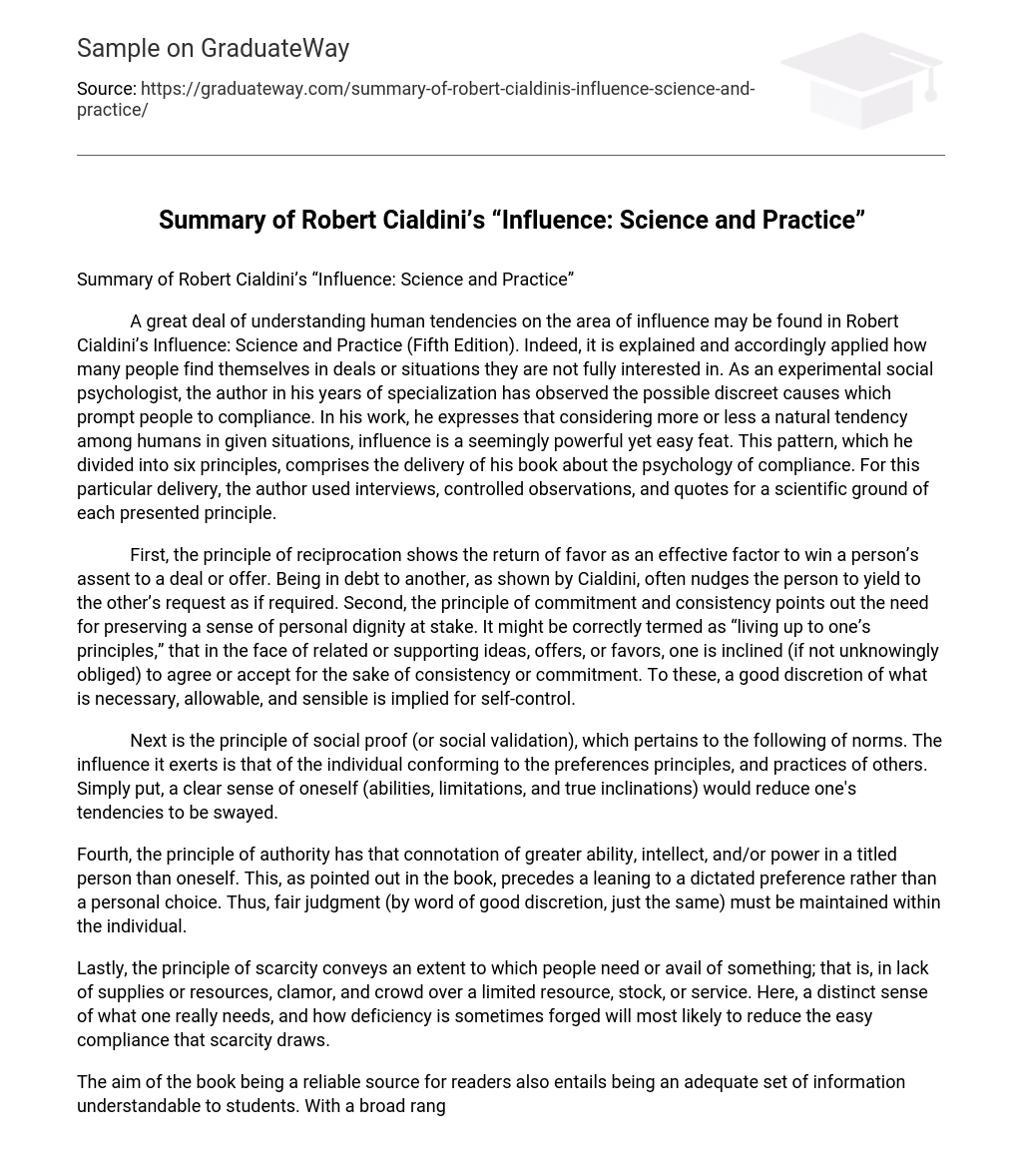A great deal of understanding human tendencies on the area of influence may be found in Robert Cialdini’s Influence: Science and Practice (Fifth Edition). Indeed, it is explained and accordingly applied how many people find themselves in deals or situations they are not fully interested in. As an experimental social psychologist, the author in his years of specialization has observed the possible discreet causes which prompt people to compliance. In his work, he expresses that considering more or less a natural tendency among humans in given situations, influence is a seemingly powerful yet easy feat. This pattern, which he divided into six principles, comprises the delivery of his book about the psychology of compliance. For this particular delivery, the author used interviews, controlled observations, and quotes for a scientific ground of each presented principle.
First, the principle of reciprocation shows the return of favor as an effective factor to win a person’s assent to a deal or offer. Being in debt to another, as shown by Cialdini, often nudges the person to yield to the other’s request as if required. Second, the principle of commitment and consistency points out the need for preserving a sense of personal dignity at stake. It might be correctly termed as “living up to one’s principles,” that in the face of related or supporting ideas, offers, or favors, one is inclined (if not unknowingly obliged) to agree or accept for the sake of consistency or commitment. To these, a good discretion of what is necessary, allowable, and sensible is implied for self-control.
Next is the principle of social proof (or social validation), which pertains to the following of norms. The influence it exerts is that of the individual conforming to the preferences principles, and practices of others. Simply put, a clear sense of oneself (abilities, limitations, and true inclinations) would reduce one’s tendencies to be swayed.
Fourth, the principle of authority has that connotation of greater ability, intellect, and/or power in a titled person than oneself. This, as pointed out in the book, precedes a leaning to a dictated preference rather than a personal choice. Thus, fair judgment (by word of good discretion, just the same) must be maintained within the individual.
Lastly, the principle of scarcity conveys an extent to which people need or avail of something; that is, in lack of supplies or resources, clamor, and crowd over a limited resource, stock, or service. Here, a distinct sense of what one really needs, and how deficiency is sometimes forged will most likely to reduce the easy compliance that scarcity draws.
The aim of the book being a reliable source for readers also entails being an adequate set of information understandable to students. With a broad range of modern applications like sales, advertising, and organizations to connect to, Influence has a definite path of directing the understanding and resolution of human nature.





